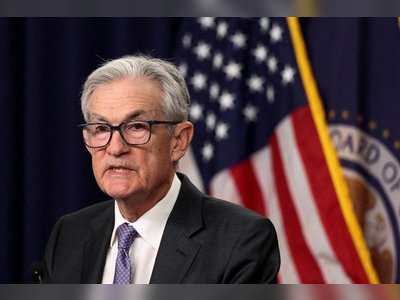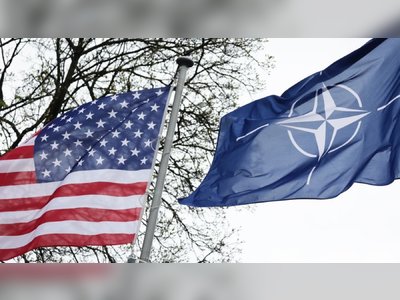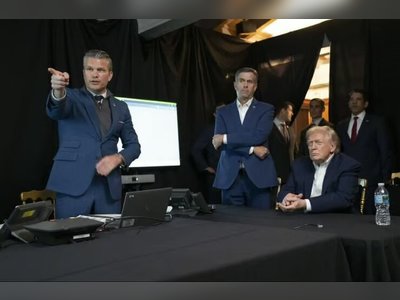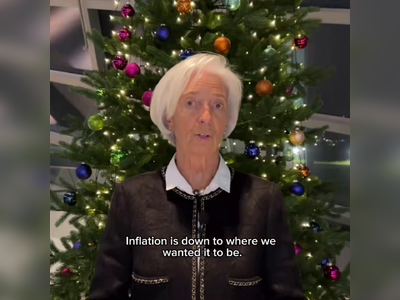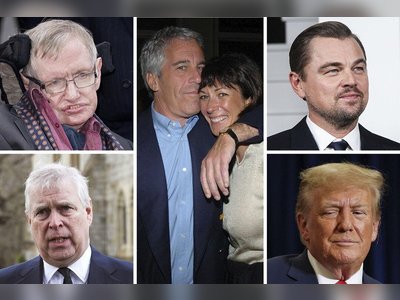Trump Minimizes Security Breach Involving Military Plans Leaked to Journalist
The president downplays the significance of a military planning incident while facing criticism for national security risks.
In a recent statement, President Donald Trump characterized the revelation of classified military plans shared with a journalist as a mere 'glitch.' This incident has drawn significant attention amid accusations from Democratic opposition leaders regarding threats to national security and gross incompetence within the administration.
Trump's comments came during a telephone interview with NBC, where he claimed that the inclusion of the journalist in a confidential discussion group was an isolated incident, describing it as 'the only glitch in two months, ultimately inconsequential.'
National Security Advisor Mike Waltz, whose Signal account was reportedly responsible for the leak, was said by Trump to have 'learned a lesson.' White House Press Secretary Karoline Leavitt stated on social media platform X that no military 'war plans' were discussed and denied that classified information had been shared during the conversation.
On Monday, Jeffrey Goldberg, editor-in-chief of The Atlantic, published a detailed account illustrating exchanges among senior U.S. officials regarding a military attack plan targeting the Houthi rebels in Yemen.
The journalist was mistakenly added to a Signal group that included notable figures such as U.S. Director of National Intelligence Tulsi Gabbard and CIA Director John Ratcliffe, both of whom are scheduled to testify before a Senate committee, with this hearing previously arranged prior to the leak's emergence.
In a stance of defiance, the U.S. administration is facing calls from Democratic lawmakers for an investigation and potential individual sanctions in light of this incident.
Trump emphasized that Waltz is 'a good guy' while redirecting responsibility toward 'an employee' of the National Security Advisor.
Analysts noted the serious implications of this security breach, as Goldberg recounted the messages exchanged leading up to military strikes executed on March 15 against Yemeni forces, including hesitations from Vice President JD Vance regarding the operation.
Goldberg acknowledged seeing a detailed attack plan, with specifications on targets and operational procedures, which he chose not to disclose further citing concerns for national security.
The U.S. has confirmed the authenticity of the leaked messaging chain, highlighting a significant security lapse for the nation.
notable figures present in the discussion included Secretary of State Marco Rubio and Defense Secretary Pete Hegseth, who dismissed the allegations and labeled the journalist as 'a supposed sneaky and very discredited reporter.' He stated firmly, 'No one sent war plans, and that’s all I have to say about it.'
The nomination of Hegseth to head the Pentagon was narrowly approved by the Senate, following concerns over his lack of experience, personal history, and professional conduct.
In response to the incident, Leavitt indicated that the White House is investigating how Goldberg's number was erroneously added to the discussion thread, and she criticized the journalist for his reputation for sensationalism.
Chuck Schumer, the Senate Minority Leader, condemned the incident as 'one of the most astonishing security breaches in quite a long time,' alongside other Democratic leaders who have raised concerns about what they perceive as the administration's reliance on loyalty over competence in appointing officials.
The founder of Signal, a messaging platform favored for its confidentiality, also took to X, humorously highlighting the risk of being unexpectedly added to sensitive military discussions.
Moxie Marlinspike remarked, 'There are a lot of good reasons to be on Signal.
One of them is now the possibility for the Vice President of the United States to accidentally include you in a group discussion on coordinating sensitive military operations.'
Trump's comments came during a telephone interview with NBC, where he claimed that the inclusion of the journalist in a confidential discussion group was an isolated incident, describing it as 'the only glitch in two months, ultimately inconsequential.'
National Security Advisor Mike Waltz, whose Signal account was reportedly responsible for the leak, was said by Trump to have 'learned a lesson.' White House Press Secretary Karoline Leavitt stated on social media platform X that no military 'war plans' were discussed and denied that classified information had been shared during the conversation.
On Monday, Jeffrey Goldberg, editor-in-chief of The Atlantic, published a detailed account illustrating exchanges among senior U.S. officials regarding a military attack plan targeting the Houthi rebels in Yemen.
The journalist was mistakenly added to a Signal group that included notable figures such as U.S. Director of National Intelligence Tulsi Gabbard and CIA Director John Ratcliffe, both of whom are scheduled to testify before a Senate committee, with this hearing previously arranged prior to the leak's emergence.
In a stance of defiance, the U.S. administration is facing calls from Democratic lawmakers for an investigation and potential individual sanctions in light of this incident.
Trump emphasized that Waltz is 'a good guy' while redirecting responsibility toward 'an employee' of the National Security Advisor.
Analysts noted the serious implications of this security breach, as Goldberg recounted the messages exchanged leading up to military strikes executed on March 15 against Yemeni forces, including hesitations from Vice President JD Vance regarding the operation.
Goldberg acknowledged seeing a detailed attack plan, with specifications on targets and operational procedures, which he chose not to disclose further citing concerns for national security.
The U.S. has confirmed the authenticity of the leaked messaging chain, highlighting a significant security lapse for the nation.
notable figures present in the discussion included Secretary of State Marco Rubio and Defense Secretary Pete Hegseth, who dismissed the allegations and labeled the journalist as 'a supposed sneaky and very discredited reporter.' He stated firmly, 'No one sent war plans, and that’s all I have to say about it.'
The nomination of Hegseth to head the Pentagon was narrowly approved by the Senate, following concerns over his lack of experience, personal history, and professional conduct.
In response to the incident, Leavitt indicated that the White House is investigating how Goldberg's number was erroneously added to the discussion thread, and she criticized the journalist for his reputation for sensationalism.
Chuck Schumer, the Senate Minority Leader, condemned the incident as 'one of the most astonishing security breaches in quite a long time,' alongside other Democratic leaders who have raised concerns about what they perceive as the administration's reliance on loyalty over competence in appointing officials.
The founder of Signal, a messaging platform favored for its confidentiality, also took to X, humorously highlighting the risk of being unexpectedly added to sensitive military discussions.
Moxie Marlinspike remarked, 'There are a lot of good reasons to be on Signal.
One of them is now the possibility for the Vice President of the United States to accidentally include you in a group discussion on coordinating sensitive military operations.'

